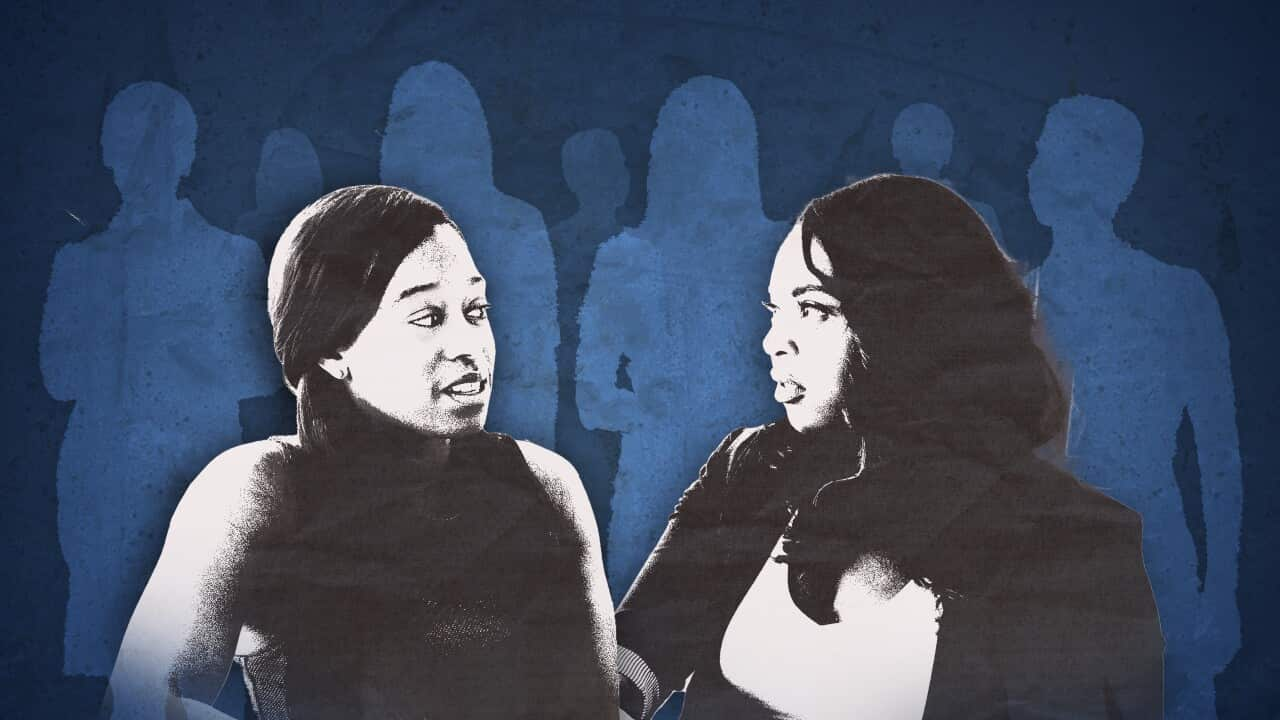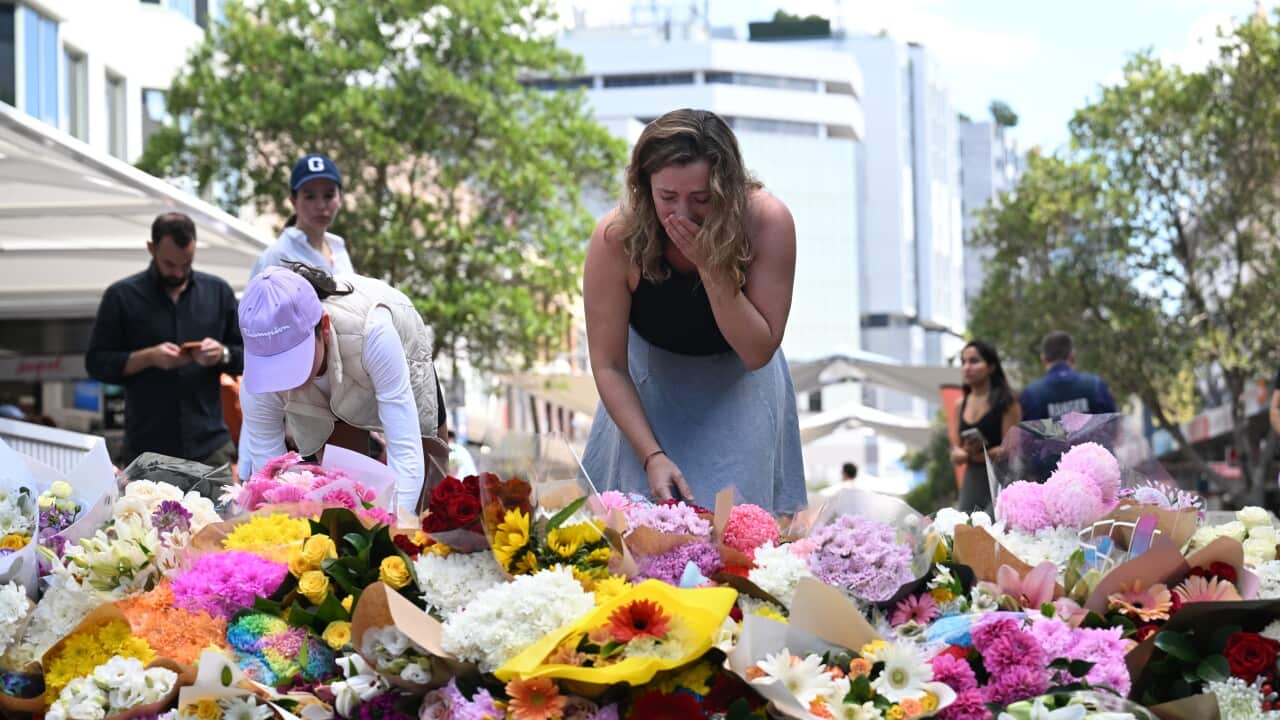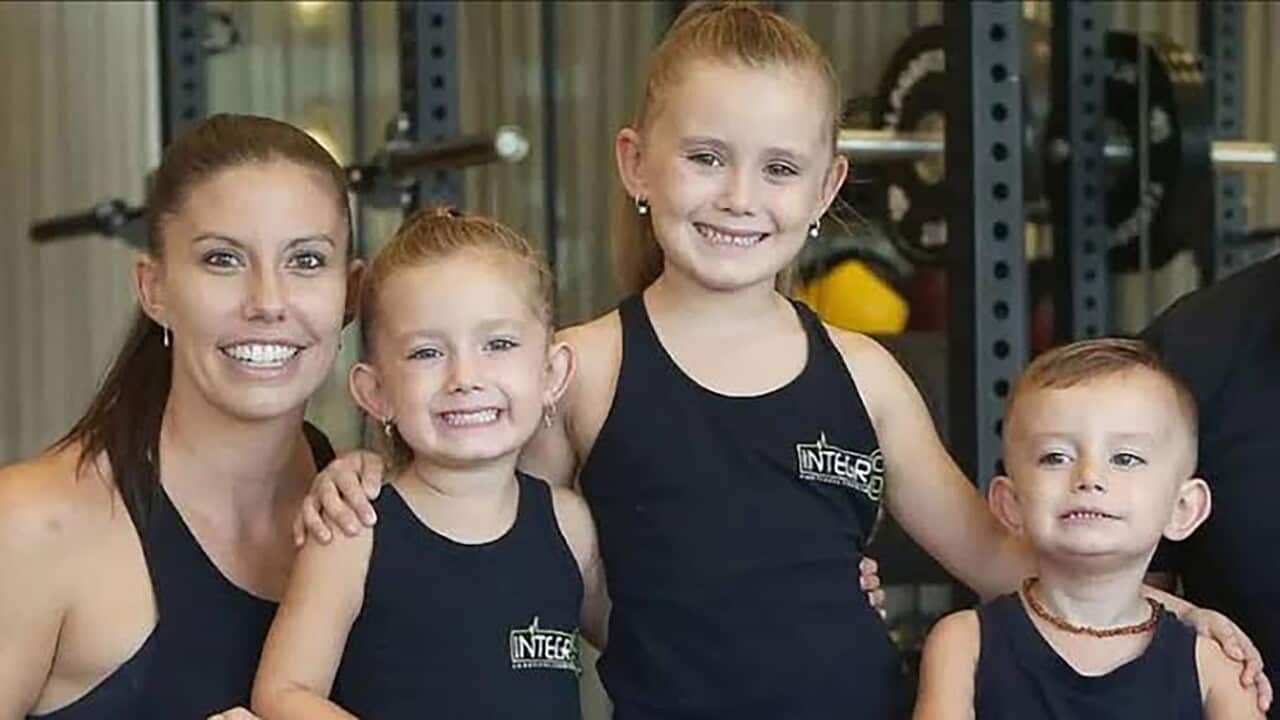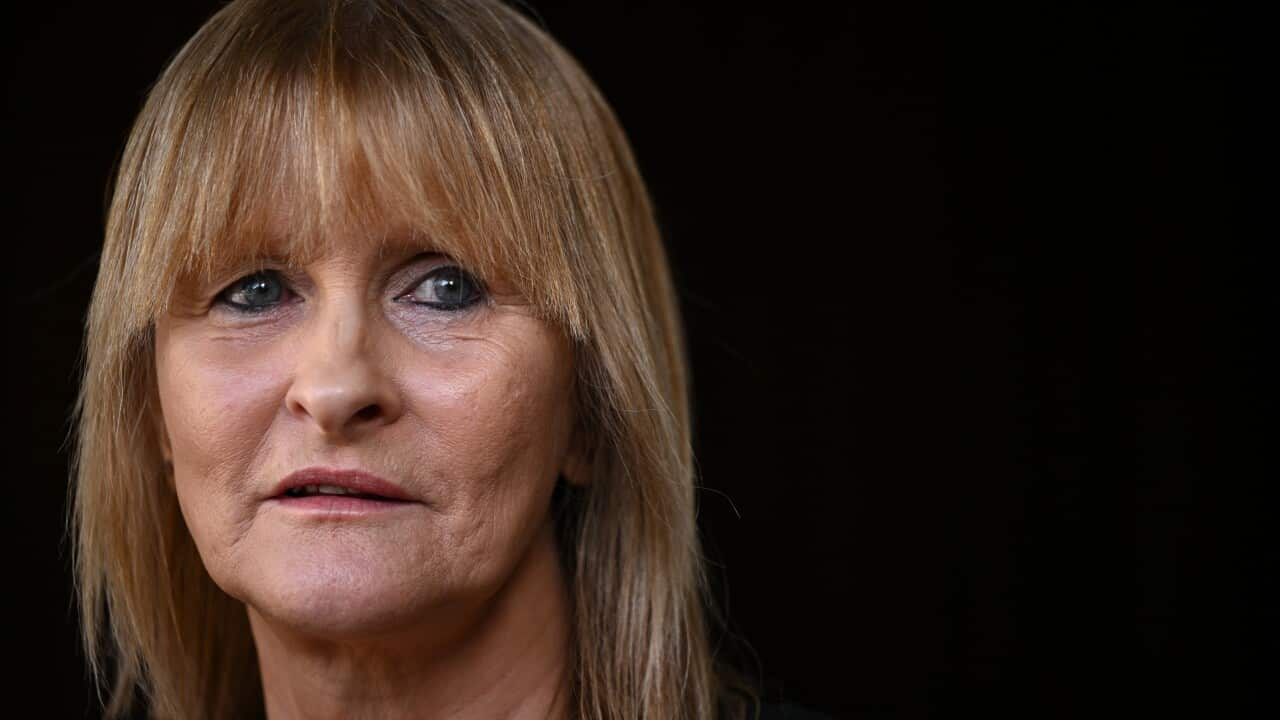Australia's domestic violence 'crisis' — and how you can support someone experiencing it
Domestic violence and coercive control have been in the headlines in recent weeks. How can you support somebody in this situation?

Advocates say victims of domestic violence and coercive control are often hesitant to speak about their experiences. Source: SBS News
This article contains references to domestic violence and coercive control
On Monday, the body of 28-year-oldwas found at her home in Forbes, NSW. Her former partner has been charged with murder.
The next day, 49-year-old Emma Bates was found dead in Cobram, Victoria. A man allegedly known to her was later charged with 13 offences including intentionally causing injury, several counts of assault and breaching a court order.
In 2024 so far, at least 26 women have allegedly died by violence in Australia according to the research group Counting Dead Women. Many of those charged have been known to the victims.
"This is a crisis in this country and women don't feel safe," Minister for Women Katy Gallagher told the ABC on Wednesday.
"It's not safe to go out for a run, go shopping — you take action against violent perpetrators, you do all the right things and we still have these cases."
On Friday, rallies calling for an end to violence against women were held in Newcastle, NSW and Ballarat in Victoria. Ballarat was the home of three women - Samantha Murphy, Rebecca Young and Hannah McGuire - all who were allegedly killed by men.
Rallies will also be held in cities and regional centres across Australia on Saturday and Sunday, with each expected to involve a march, speeches and performances.
Domestic violence and coercive control are complex issues.
Here are the signs to look out for, and what you can do if you think somebody is experiencing domestic violence.
Karen Bevan, CEO of Full Stop Australia, which supports people who experience sexual, family, or domestic violence, said while victims sometimes exhibit signs of physical abuse, this is not always the case.
She told SBS News some key signs to look out for are a person changing behaviour around socialising, spending money, or talking about their relationship.
"We might notice that somebody starts to withdraw a little bit from their social circle; they might start being more anxious about how they spend their money, what might be going on socially, they might be less interested in attending," she said.
"We might also see people start to be less open about their relationship."
Sue and Lloyd Clarke founded Small Steps 4 Hannah after , along with her three children, was killed by her former partner.
They said coercive control can often be subtle, and particularly difficult to detect.
Signs of coercive control can include a person's partner constantly texting or calling them, controlling finances, limiting their social life, or over-the-top attention.
"Even things like someone turning up at the workplace constantly because they 'love you' — that's another way to monitor that you actually are at work," Sue said.
"And it seems strange, but workmates can pick up on that if they seem to be popping in just too often."
Bevan said people experiencing domestic or family violence are often hesitant to ask for help or speak about the issue.
"People often feel really scared that they're going to make it worse by asking," she said.
"So if you're going to raise this with someone, starting from a place of gentleness is really important and opening gently the door to a conversation."
Bevan suggested questions such as 'I've noticed you seem a bit stressed lately' or 'I've noticed you seem a bit nervous around your partner, is everything ok?' can be a suitable starting point.
She said it is also important to have these conversations in a safe space and in a non-judgmental manner.
Lloyd said not to push too hard, but to let the suspected victim know you are a safe space, and that you believe them.
"You need to take your time with this ... they've been beaten down over a period of time and sometimes they feel quite ashamed that they're in this relationship," Lloyd added.
"You have to take the shame away, it can happen to anybody."
Bevan said if you think domestic violence might be occurring in a relationship, you should not confront the suspected perpetrator.
"This could escalate risk for the person you care about," she said.
"It's unlikely to achieve a good outcome."
The Clarkes also urged caution around contacting police on behalf of another person.
"I think you can ring and speak to the authorities ... I would speak to the police about it so that there's a record that you are concerned," Sue said.
"But I think to have the police go around (to their home) it could really cause a lot of problems and actually put the victim in danger."
In an emergency situation, contact 000.
When supporting somebody in a domestic violence situation, the Clarkes said it is important to be patient and consistently remind the victim you are there for them.
Leaving a violent or controlling relationship is complex, particularly if children are involved, and can take multiple attempts.
"You can't force the victim, they have to be ready to go," Sue said.
"Statistically women can go back seven times before they leave for good; and as frustrating as it seems for loved ones to watch this, you have to accept that and just be patient."
The Clarkes also suggested keeping a record of incidents that the perpetrator will not find and helping the victim to create a plan to get away safely.
In addition to consistently checking in and offering support, Bevan suggested making sure the victim is aware of their options.
"Some other things you can do might be to help them — when they indicate that they'd like to — research some access and support options," she said.
"So practical things like helping them identify some local support services, is there someone they can talk to and what might they do about childcare."
Bevan also suggested making sure the person has a separate bank account and access to documents such as birth certificates and passports.
In October 2022, the federal, state and territory governments released the National Plan to End Violence against Women and Children 2022–2032.
The National Plan outlines key changes needed across four domains: prevention, early intervention, response, and recovery and healing.
In August 2023, Social Services Minister Amanda Rishworth under the framework, which included a reduction target of 25 per cent for female victims of intimate partner homicide.
But Gallagher said the problem runs deeper than finding more resources and funding for support services, and requires societal change and greater involvement from men.
"I don't think there is one easy answer, and there's not one government that can solve it," she said.
"Because the problem is deeper than that and it requires all of us."
If you or someone you know is impacted by family and domestic violence, call 1800RESPECT on 1800 737 732, text 0458 737 732, or visit . In an emergency, call 000.
Share
7 min read
Published 26 April 2024 7:31pm
By Jessica Bahr
Source: SBS News
Available in other languages
Share this with family and friends
Read more
Recommended for you

The $1billion strategy to combat gender-based violence: Where is the money going?
Violence Against Women













